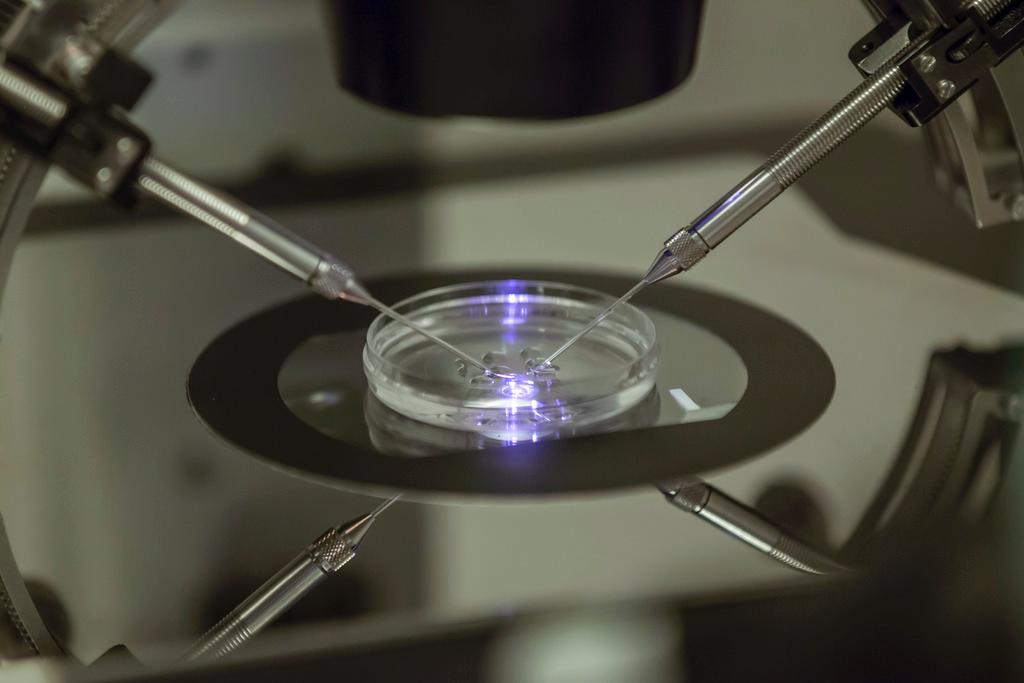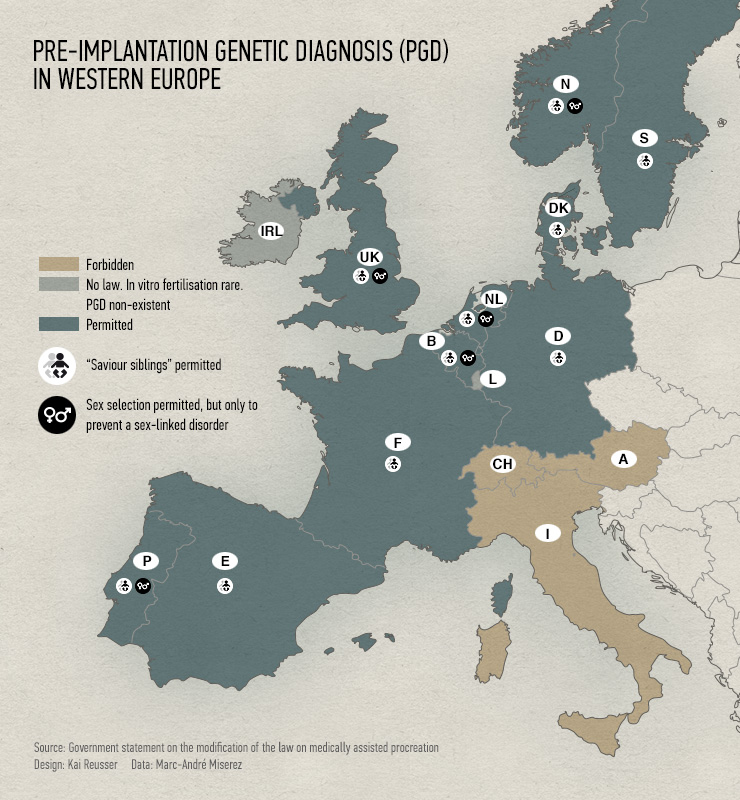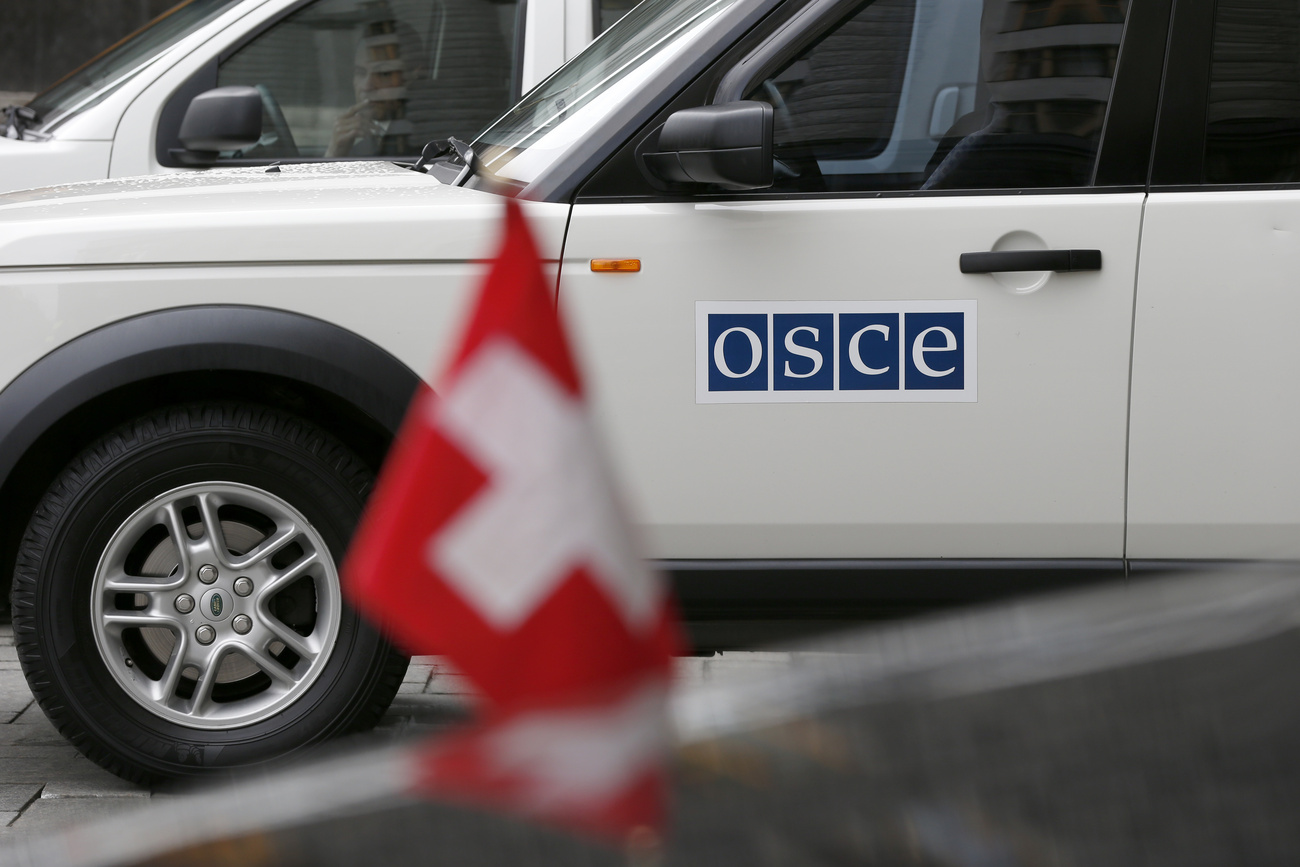
Bioethics: too complex for direct democracy?

As the Swiss weigh up whether to allow the screening of IVF embryos, a political scientist tells swissinfo.ch how voters inform themselves on complex emotional issues – and whether campaigners should aim for the head or the heart.
Georg Lutz, professor of political science at the University of Lausanne, also discusses the role of social media and the waning influence of the church over the electorate.
“This issue leaves no one unmoved,” said Interior Minister Alain Berset as he launched the campaign in favour of pre-implantation genetic diagnostics (PGD), already allowed in most of western Europe. “Because it concerns the wish to have children and the selection of human embryos.”
On June 14, Swiss voters will either accept or reject the constitutional amendment, backed by most political parties and doctors, who say Switzerland’s restrictive reproductive medicine laws push couples abroad and cause unnecessary abortions.

swissinfo.ch: How do voters make up their minds on emotionally charged scientific issues such as genetic screening, abortion, genetically modified food and so on? Do many take the time to analyse the evidence or do they just go with their gut feeling?
Georg Lutz: I think a lot of people go with their gut feeling – and not just on these issues. It’s what people do in general when making up their mind.
But that doesn’t mean it’s a completely random choice. What’s important in this type of issue is that it touches on religion for some people. I think people have some sort of predisposition: if you’re religious, do you believe that humans shouldn’t interfere too much in the beginning and end of life?
But it’s too complex to assume that many people go into detail and really think what this is about. Instead they rely on fairly general principles.
Georg Lutz is project director of the Swiss Electoral Studies (Selects)External link at the Social Science research centre FORSExternal link, Lausanne, and professor of political science at the University of LausanneExternal link.
He holds a PhD in political science from the University of Bern. His work focuses on political institutions and political behaviour in a comparative perspective, as well as Swiss politics.
swissinfo.ch: Are some issues too complex to be decided by voters?
G.L.: That’s a very big question! There are many ways to frame that – as a very general question on whether people in general are fit for direct democracy. I don’t think [pre-implantation genetic diagnostics] is any more difficult than other questions – sometimes voters have to assess what impact a certain measure will have on the future of the economy, which isn’t a particularly easy task either. And in Switzerland there is this strong belief that people are generally capable of taking such decisions, even when they are fairly complex.
Studies show there is a huge variation in people’s general and specific knowledge on all kinds of issues: there’s a small group that is reasonably knowledgeable and a lot of people who aren’t. But you don’t really need to have a fully informed decision in order to make a reasoned decision. You can just rely on some basic values, which give you guidance; you can also rely on the recommendations of the parties or certain interest groups such as the church or organisations and institutions that you feel close to.
swissinfo.ch: All major political parties have recommended a yes for PGD apart from the conservative right Swiss People’s Party (recommending no) and the leftwing Social Democrats (not making a recommendation). Any surprises there?
G.L.: I thought the Christian Democrats were going to lean towards a no. But it just shows that conservative parties and the left are both divided on the issue, which is rare. It’s an ethical issue for everyone. On the left too there are people who think there should be limits on what medicine can do.
swissinfo.ch: How much attention do voters pay to these recommendations?
G.L.: What is kind of strange is that when you ask people directly whether they are aware of the recommendation of their preferred party – and there are polls that have done that – a lot of people say no. But when you look at the extent to which voters vote in line with their party recommendation, quite a large number of people actually do that. I think people get a feeling for where organisations or parties that they are close to stand.
swissinfo.ch: Do they pay more attention to the recommendation of the cabinet?
G.L.: It’s important for some people. More traditional voters – especially when in doubt – trust the cabinet much more than they trust parties.

More
Switzerland among the ‘hardliners’
swissinfo.ch: By and large, supporters of PGD are using facts and data whereas opponents are using emotions, talking about slippery slopes, eugenics and designer babies. Which is the best strategy: targeting the head or the heart?
G.L.: The successful campaigns for controversial issues have been the ones that managed to create positive or negative emotions much more than trying to rationalise.
When it’s an issue that not many people will understand in detail, I think it can be a problem to rationalise too much. In general it’s wiser to get an emotional touch into your campaign rather than bringing fairly complicated rational arguments.
swissinfo.ch: But if, as you said, many people have predispositions and have already made up their minds, aren’t campaigners wasting their time?
G.L.: It depends. In this case the yes side has a huge advantage because the issue has passed parliament, most parties are behind it, the scientific community is behind it – they’re not trying to win a hopeless battle.
But if you have scientists involved, it’s hard to put forward emotional arguments – it wouldn’t be very convincing for many people. So they don’t really have much of a choice.
swissinfo.ch: Are there noticeable trends for who is more likely to approve bioethical issues?
G.L.: I looked at the data for two issues of a similar dimension – the initiative on protecting people from manipulation in reproductive medicineExternal link in 2000 and the law on research involving embryonic stem cellsExternal link – which were also partly controversial ethical issues.
Interestingly, it’s really hard to find any clear trends: voters of the parties on the left and right were divided and the only clear smaller trend was that people who attend religious services were more likely to be in favour of protection from manipulation and against stem cell research.
The other small trend was that the French-speaking part of Switzerland leans slightly more towards science than the German-speaking part. But there’s no age difference, no enormous gender difference.
swissinfo.ch: Recent surveys have shown that the Swiss are increasingly irreligious. Does this mean scientific initiatives now have greater chances of being approved? Are we going to see more such initiatives?
G.L.: I don’t think so. For a lot of people this is not a religious question, it’s an ethical question. A lot of people are critical of what medicine can do not for religious reasons but for ethical reasons.
What is certain is that nowadays it doesn’t really matter what the church says. The church just isn’t an important point of reference. Thirty or 40 years ago it would of course have been a lot more important.
swissinfo.ch: So what are the main sources of information for people today?
G.L.: When you look at the data, what is important are the leaflets that get sent to people’s homes. These are still used to a great deal because that’s what people have in their hands when they sit down at home – and that’s how people fill out their ballots in Switzerland: you sit down at the kitchen table with your ballot paper and what you can access directly is this leaflet.
You’ve also got newspapers and television. I don’t believe social media are very relevant at the moment – most people don’t use social media to get informed about politics. Much more important is what it says in newspapers like [freesheet] 20Minuten and [tabloid] Blick, which are a much more important source of information for less-informed people than Twitter or Facebook. The readership of quality newspapers is going down, but at the end of the day, information for many people is extremely selective.
In Switzerland, around 6,000 couples a year turn to artificial insemination, which produces some 2,000 of the 80,000 babies born in Switzerland.
The constitution currently allows for the creation in vitro of only the number of embryos “that can be immediately implanted”, which in practice is three.
Diagnostic testing for incurable diseases and genetic anomalies such as Down syndrome is already allowed on foetuses in the uterus. Abortions are possible up to the 12th week.
If the amendment is passed, the same diagnostic testing would be authorised for embryos conceived in vitro (IVF), namely before pregnancy. This would in theory remove the need for an abortion later on (up to the 12th week). In addition, it would be possible to create as many embryos “as necessary for medically assisted reproduction”. This could be up 12. The law would also allow the freezing of embryos so that just one could be implanted at a time and the others saved for future attempts. This is intended to reduce the number of multiple births and their accompanying risks (the rate of multiple births is three times higher in Switzerland than Sweden, which allows the implantation of single embryos).
Parliament declined to authorise the creation of embryos to harvest stem cells for the sole purpose of providing medical treatment to a sibling. Parents will still be banned from selecting an embryo based on sex.

In compliance with the JTI standards
More: SWI swissinfo.ch certified by the Journalism Trust Initiative






























You can find an overview of ongoing debates with our journalists here . Please join us!
If you want to start a conversation about a topic raised in this article or want to report factual errors, email us at english@swissinfo.ch.